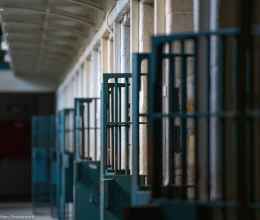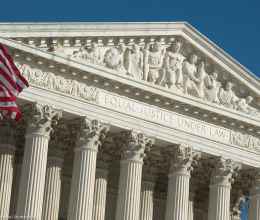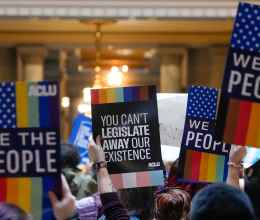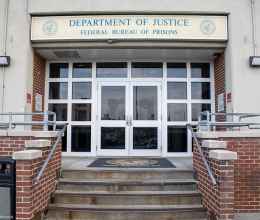
March 3, 2018
DELIVERED VIA EMAIL
Florida Senate
The Capitol
400 S. Monroe Street
Tallahassee, FL 32399
Re: Concern Regarding Increasing Law Enforcement in Schools
Dear Senators:
On behalf of more than 130,000 members and supporters statewide, the American Civil Liberties Union of Florida urges you to ensure your effort to protect students does not result in the further over-criminalization of youthful misbehavior or mental illness. We commend you on your quick response to this tragedy and for hearing the voices of the many students and families who have demanded action. We write to ensure that measures intended to protect our students from harm do not result in putting more of them on a path to incarceration.
We are particularly concerned about proposals to increase the presence of law enforcement officers in our schools. While intended to protect the student body, these officers are often relied upon to provide routine school discipline. The tools law enforcement uses to combat unruly behavior are often not appropriate in our classrooms, where conflict would be a learning experience, but for the reliance on law enforcement.
Unsafe Schools
After every school shooting, calls to harden our schools ring out. This gut reaction to protect our kids is natural. Unfortunately, the armed guards in schools are not like the armed guards at the Capitol. While you work on legislation, you are not treated like a suspect by your guards. They are focused on protecting you from public threats. They are not policing the Capitol hallways, looking for legislator indiscretions, and making arrests for poor choices.
In contrast, in our schools, our students are the suspects. They are learning under the watchful eye of law enforcement. Law enforcement patrols the halls. Law enforcement is called when students get into school ground fights, even food fights. Law enforcement is called when students are disruptive – according to Department of Juvenile Justice (DJJ) reports, officers arrest more than 1,000 students annually for disorderly conduct alone.
Adolescents make mistakes. Teens are biologically wired to be more reckless, especially when peers are present. Science tells us that they respond better to rewards than punishments, and yet the DJJ reports nearly 5,000 arrests for misdemeanor offenses in schools annually, two thirds of which are for non-violent offenses. The evidence shows that even one arrest reduces the likelihood of graduation and makes a future arrest more likely.
Our youth are shaped by their environments and experiences. Teens especially rely heavily on these in shaping their identity. Let’s protect their schools as learning centers, not prisons. Let’s treat our students like our future leaders, not criminal suspects.
Unequal Justice
While an increased law enforcement presence in schools impacts all students, it is especially hard on youth of color, youth with disabilities, and youth who identify as LGBTQ:
- Black students are more than twice as likely as their white peers to be arrested at school.
- Students with learning disabilities as evidenced by IEPs are nearly seven times as likely to be arrested at school. Black students with IEPs are nearly three times as likely to be arrested as their white classmates with IEPs.
- Although LGBTQ youth represent 5 to 7 percent of the nation’s population, they represent 13 to 15 percent of youth in the juvenile justice system.
Such inequities are unjust in a diverse state like Florida that guarantees its youth a uniform, high quality system of public education. To double the number of law enforcement officers patrolling our school halls would exacerbate this injustice.
School Resource Officers Fill Unclear Role
School resource officers often perform a triad role: counselor, teacher, law enforcement officer. While they may be good law enforcement officers, counselors are better prepared to counsel at-risk students, and teachers are better equipped to teach them. With the blurred lines of law enforcement and school administration, students struggle to assert their constitutional rights and protections. Law enforcement has unprecedented access to monitor them and review their records and may be present for investigations and searches, even if students may not have access to legal representation. Most of us would not accept this level of intrusion on our liberty.
A Better Approach
You are considering many proposals to improve the accessibility of mental health services for youth. Funding youth mental health services will be a more effective investment to prevent mass killings than increasing the presence of law enforcement officers in our schools. While 80 percent of our high schools have law enforcement officers and a quarter of our districts already meet the Governor’s suggested ratio, no district meets the recommended ratio for school counselors of 1:250. Instead, most districts expect their school counselors to serve twice that number of students while juggling countless other responsibilities.
Medical experts tell us that the majority of mental illnesses first appear in adolescence. Such illnesses also respond to treatment best during this time. Investing in such services and programming will help students develop the tools they need to be successful adults. As long as schools prioritize punishment over treatment and services, at-risk kids will be pushed out of schools and onto the path of delinquency. This hurts us all. Kids’ unmet needs can’t be kicked down the road – they grow into larger problems for society.
We urge you to remove any requirements or incentives for school districts to employ school resource officers and instead invest further into mental health services for youth and restorative strategies for youthful misbehavior in schools. We also urge you to create safeguards to ensure our students are not unduly criminalized:
- Clearly define the role of law enforcement officers in schools to ensure they are only focused on imminent threats to student safety, not school discipline.
- Require annual data reporting and analysis to track school policing trends.
- Require training for law enforcement working with youth to include youth development and criminality, non-violent conflict resolution, de-escalation techniques, cultural competency and implicit bias and interacting with youth with disabilities.
Thank you for your consideration of the above and we look forward to working with you as this process moves forward. Please do not hesitate to contact me at (786) 363-4436 or kgross@aclufl.org if you have any questions or would like any additional information.
Sincerely,
Kara Gross
Legislative Counsel
Cc: Howard Simon, Executive Director
Kirk Bailey, Political Director






